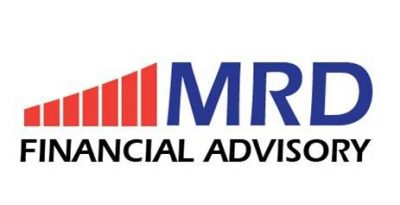
Knowing about the Tax Benefits Associated with Loan Against Property
By: Mahesh Dubey July 20, 2021 | Category: Loan Against Property
Applying for and securing a mortgage against a property, whether residential or commercial, has been quite familiar and chosen option for people whenever they require a significant amount of money. You may have considered it at one point or may already have opted for it when needed. Financial issues are nothing new, and handling that properly means arranging for a substantial fund. If you own some property, it will become easier to secure a loan against it. Unlike selling off your property, a loan against property in Kolkata will be enough to arrange for the money while retaining what you own.
The Notion of getting to Enjoy Tax Benefits on the Loan
The eligibility criteria for such a loan are clear and simple. They can be easily handled by borrowing funds from a recognized lending organization while pledging commercial or residential property as collateral. Such a loan will be a secured loan, leading lenders to offer competitive interest rates, which is more beneficial for you as the applicant. This kind of loan is usually long-term and can go up to twenty years. However, it also comes with an additional benefit that you probably haven’t acknowledged. Whether you are a salaried individual or a self-employed professional, you can claim tax benefits because of this loan.
The Tax Benefit Against Under Section 24 (B)
This tax benefit is suitable for salaried individuals. When the borrowed fund is used for purchasing another residential property, the tax benefit can be claimed, and it can be up to Rs. 2 lakhs. To enjoy this benefit, you will have to establish a link between the loan amount and the end-use, which must be in accordance with Section 24 (B). Apart from that, you can claim tax deductions on the interest paid. However, the principal won’t come under the purview of this facility. If you use the funds for any other purposes such as marriage, education, holiday, and personal entertainment, then tax exemption cannot be claimed.
Tax Benefits on Top-up Loans
Sometimes, along with the loan continuing, you may need some additional funds, and for that, you can choose to opt for top-up loans. These loans have a lower interest rate than personal loans and are perfect for any sudden financial crunch that may come up. If you have all the documents and receipts to establish that the top-up loan taken will be used for acquisition, construction, renovation, repair of a residential property, the tax benefits can be easily claimed. The maximum deductible amount will be Rs. 30,000 and can be claimed only when the property is self-occupied.
The Correlation of Repayment is Essential Information
When it comes to enjoying the tax benefits on loan against property, whether about top-up loans or the primary loan itself, the calculation depends on the principal repayment in correlation to the usage of the fund. Therefore, depending on the use of the fund, the purview of the tax-deductible act will be decided. As it is not easy to gather a clear idea on the subject without proper training and experience, it will be better to hire a professional. They will find out the necessary details and inform you about the whole process in a simple way. This way, enjoying tax benefits on your loan against property will become simple.

Things That No One Will Tell You About Loan Against Property
By: Mahesh Dubey March 15, 2021 | Category: Loan Against Property
If you are searching for a loan against property, it needs to be understood that it is a secured finance source used by individuals and businesses. Also, one gets financed by mortgaging their residential or commercial property. An individual can receive the funds as per the particular percentage of the property’s value. Moreover, loan against property interest rates is better than the rest of unsecured loans.
The Intention of a Loan Against Property
A loan against property in Kolkata helps in many ways and can support both individuals and businesses. In general, a loan against property is used by many people to assist in meeting their many life goals like funding children education or making a down payment for starting a new business. Yes, even business owners use it to expand their processes, research and development, marketing, and many other reasons. Usually, this loan can be granted only against commercial and residential property.
Advantages of Loan Against Property
The several advantages of a Loan Against Property are given below.
Competitive Interest Rates
Since a loan against property is a secured source of finance, interest rates happen to be lower than any other alternative ways. In other words, one has to pay lower EMIs, which makes it easy for the individual borrowing the money to take care of other financial requirements without putting stress on the budget.
Long Repayment Tenure
It needs to be understood that a loan against property has a long repayment duration. Hence, it reduces the burden of paying the EMI to a great extent and facilitates easy repayment.
Continuous Ownership of the Property
This loan helps the borrower make the best of the potential of the asset. It allows them to continue using the property and use it while availing the funds without any hindrance. On the other hand, it is crucial not to default the EMI, which may invite legal issues in the upcoming days.
Eligibility for Loan Against Property
There is a small point of contrast in Loan Against Property eligibility for people and businesses. Usually, when it comes to a salaried individual, lenders select a particular annual income under which they do not approve the loan application. There is also a minimum and maximum age limit for the approval of the loan. Even businesses are required to have a particular turnover to get Loan Against Property. In contemporary times, maximum lenders describe the eligibility norms on their online sites.
Documents needed for business to get Loan Against Property are:
- Audited ITR financials
- Bank statements of the primary account along with other accounts as mentioned in the balance sheet
- Certificate of incorporation for companies
- Partnership deed and partnership authority letter (in case of a partnership firm)
- Shareholding patterns in case of private/public limited company
Besides that, one needs to attach a copy of the following:
- PAN card
- Identity proof
- Address proof
- Business continuity proof
- Passport-size photographs
Even the list of documents needed to get the loan is also given on the lender’s website.

